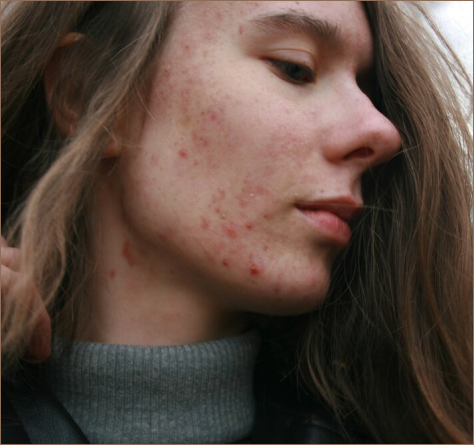Can Your IUD Cause Acne? Studies show hormonal IUDs can cause acne in some individuals

Hormonal IUDs and Acne: Understanding the Facts
Hormonal Intrauterine Devices (IUDs) have gained popularity as effective long-term birth control options. However, acne has been shown to be correlated with hormonal IUDs.
Understanding Hormonal IUDs:
Hormonal IUDs, such as Mirena, Skyla, and Liletta, are small T-shaped devices inserted into the uterus to prevent pregnancy. They release progestin, a synthetic hormone, which thickens cervical mucus, inhibits sperm movement, and may also affect the uterine lining to prevent implantation.
The Acne Debate:
With hormonal IUDs, the concern often revolves around the hormone progestin, which can influence sebum production in the skin, potentially leading to acne breakouts. The acne bacteria likes to overgrow in sebum, so increasing this on the skin can lead to acne breakouts.
Research Insights:
A comprehensive study conducted by a team of dermatologists and researchers shed light on the correlation between hormonal IUDs and dermatologic conditions. The study compared women using hormonal IUDs with those using non-hormonal copper IUDs.
The findings revealed a significant association between the implantation of hormonal IUDs, which release levonorgestrel, and the development of acne vulgaris. Specifically, the odds of developing acne were substantially higher in the hormonal IUD group compared to the non-hormonal IUD group. This effect was observed across various age groups but notably decreased with increasing age.
The study importantly highlights that while hormonal IUDs offer effective birth control, they may also lead to acne. These findings emphasize the need for individuals to consider their skin health and history of dermatologic conditions when making contraceptive choices. For those concerned about acne, discussing alternative contraceptive methods with a healthcare provider is advisable.
Individual Variability:
It's essential to recognize that responses to hormonal changes, including those induced by IUDs, vary among individuals. While some may experience acne flare-ups, others may notice no discernible change. Additionally, it was shown that acne is less likely to develop with a hormonal IUD as you get older.
Managing Acne with Hormonal IUDs:
Choosing the right contraceptive is a deeply personal decision, influenced by a variety of health, lifestyle, and personal preferences. For those experiencing acne after the implantation of a hormonal IUD, it's crucial to consult with a dermatologist and gynecologist to explore the best course of action, whether it involves acne treatment strategies or considering alternative forms of contraception.
For individuals experiencing acne flare-ups after hormonal IUD insertion, do not rush to remove your IUD or give up hope, please see a dermatologists who can recommend treatments for the acne, including topical medications, oral medications, or adjustments to skincare routines. For our patients, we often recommend spironolactone along with topical retinoids and medicated washes to control acne breakouts.
Conclusion:
While hormonal IUDs remain a highly effective and convenient form of birth control for many, being informed of all potential side effects, including the risk of developing acne vulgaris, is essential for making empowered healthcare decisions.
If you're considering a hormonal IUD but worried about acne, discussing your concerns with a healthcare provider can provide clarity and guidance tailored to your needs. Ultimately, the decision to use a hormonal IUD should weigh the contraceptive benefits against potential side effects, including acne, in consultation with a trusted medical professional.
Acne management strategies are available for those experiencing skin concerns while using hormonal IUDs, ensuring that individuals can make informed choices about their reproductive health without compromising their skin health.
References:
Munjal A, Tripathi R, Wu C, Radke S, Powers JG. Correlations between hormonal intrauterine devices and androgenic skin conditions: A retrospective cohort study. J Am Acad Dermatol. 2022 Nov;87(5):1112-1114. doi: 10.1016/j.jaad.2022.01.023. Epub 2022 Feb 24. PMID: 35219751.
